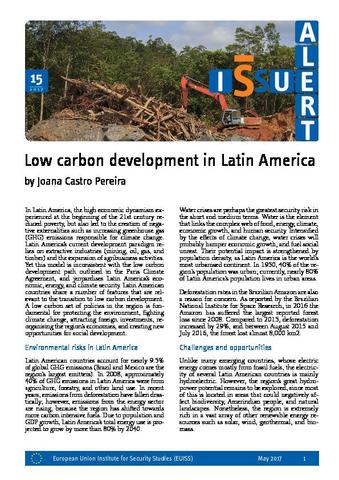You are here
Low carbon development in Latin America

In Latin America, the high economic dynamism experienced at the beginning of the 21st century reduced poverty, but also led to the creation of negative externalities such as increasing greenhouse gas (GHG) emissions responsible for climate change. Latin America’s current development paradigm relies on extractive industries (mining, oil, gas, and timber) and the expansion of agribusiness activities. Yet this model is inconsistent with the low carbon development path outlined in the Paris Climate Agreement, and jeopardises Latin America’s economic, energy, and climate security.
Latin American countries share a number of features that are relevant to the transition to low carbon development. A low carbon set of policies in the region is fundamental for protecting the environment, fighting climate change, attracting foreign investments, re-organising the region’s economies, and creating new opportunities for social development.